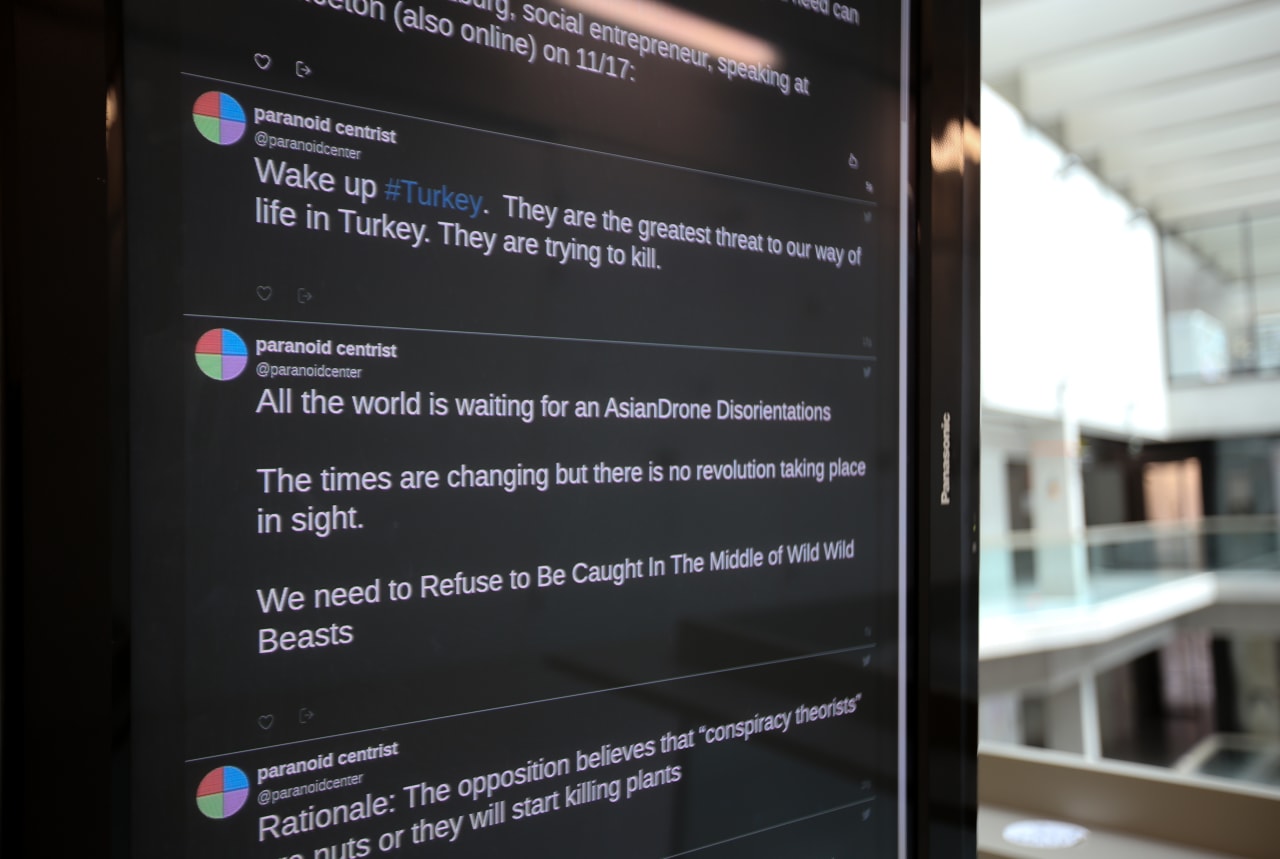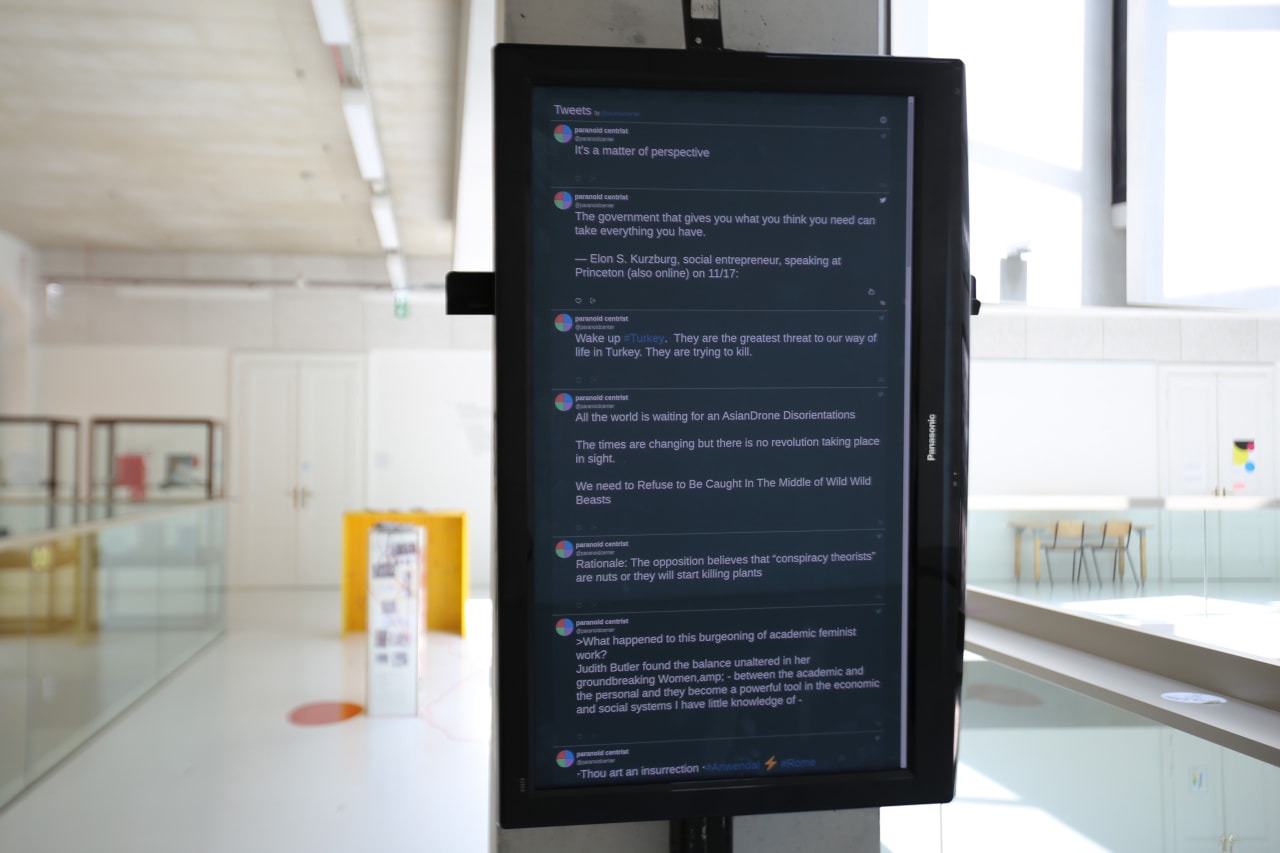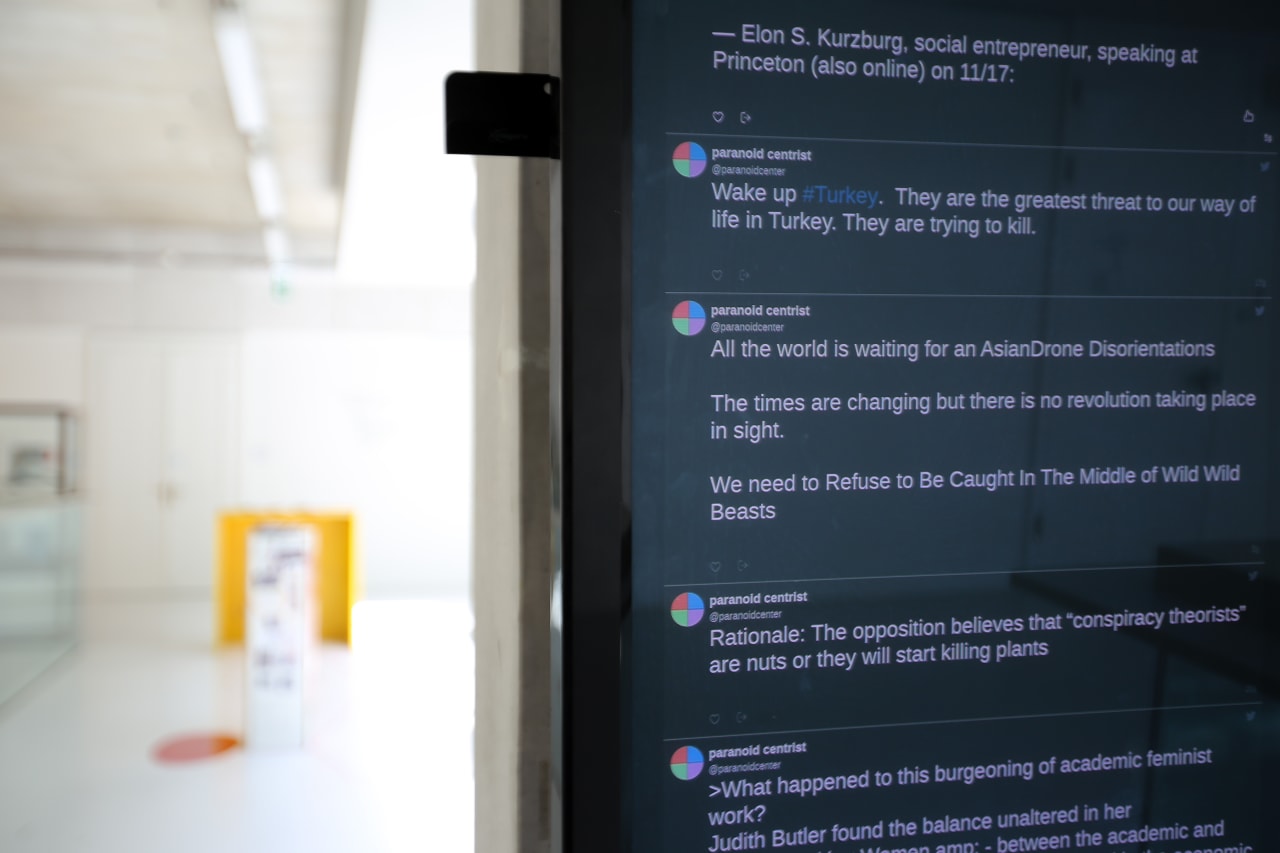the paranoid centrist is a Twitter bot that uses machine learning to distill something like the essence of the paranoid position – a paranoid mode of political discourse independent of political orientation described in Eve Sedgwick’s seminal paper Paranoid Reading and Reparative Reading.
Sedgwick begins her 2003 essay with an anecdote from her own experience as an activist in the left queer community. she describes her impression of a tendency in political organising that privileges knowledge – the striving for and exposure of truths – over the question of how or whether such knowledge can be turned into effective political action. she goes on to link this information-centred epistemic mode to Melanie Klein’s concept of positions, in particular the paranoid position: an anxious, defensive relational stance of alertness to one’s environment. Klein contrasts this position with the depressive position, which she frames as an anxiety-mitigating, constructive or “reparative” stance. these two positions are not mutually exclusive, rather it is normal for an individual to oscillate to-and-fro between the two, to inhabit them to different degrees.
while Sedgwick focusses on a constructive critique of paranoid critical inquiry as the default go-to within her own political sphere, she acknowledges that the paranoid position is not unique to the left, but “how normative (…) paranoid thinking has become at every point in the political spectrum” (p.143). this point resonates strongly today, when the ‘alt right’ and their conspiracy theories – PizzaGate, QAnon, etc. – have become the most emblematic examples of the paranoid position.
this apparent applicability of epistemic positions – on a scale from paranoid to depressive/reparative – across the political spectrum suggests that it captures a dimension of someone’s political ‘position’ that is independent from (or even orthogonal to) their political values. the goal of this project was to create a quintessentially paranoid yet politically ‘unbiased’ (‘average’? ‘centrist’? covering the entire political spectrum?) agent of political interaction, engaging in probably the most farcical form of contemporary English language political discourse: Twitter.


